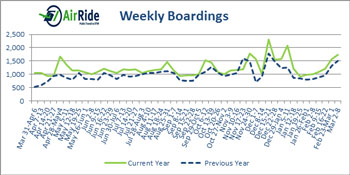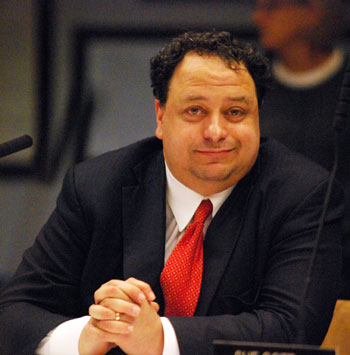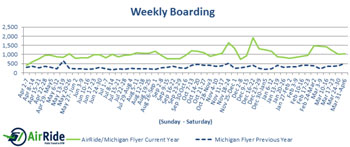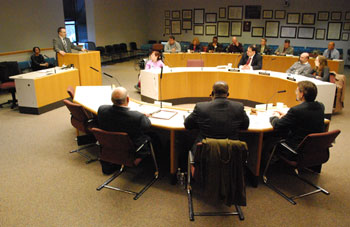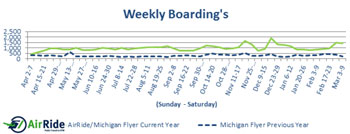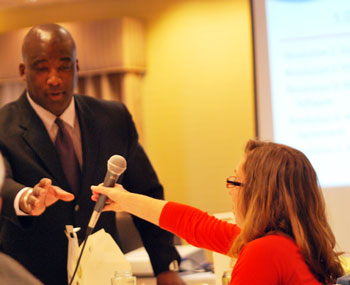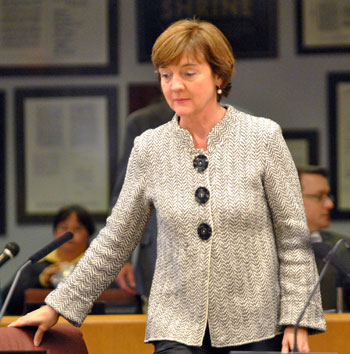AirRide OK’d, State Funding Reviewed
Ann Arbor Area Transportation Authority board meeting (March 20, 2014): Board chair Charles Griffith opened the meeting by noting that the agenda was a lot lighter than last month, when the board had passed 10 separate resolutions – including a vote to put a transit millage proposal on the May 6 ballot.
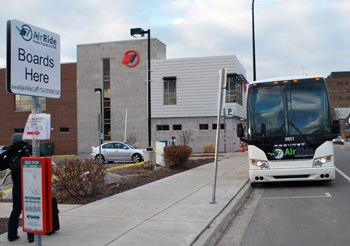
Looking north on Fifth Avenue at the AirRide stop, just south of the newly opened Blake Transit Center. (Photos by the writer.)
The only voting item handled by the board at its March 20 meeting was the extension of a contract with Michigan Flyer to provide service between downtown Ann Arbor and Detroit Metro Airport. The board authorized the first of three one-year extensions on the initial two-year contract for the service, called AirRide.
For the third year of the agreement, the not-to-exceed amount is $170,000. That compares with the first year of the contract that was not to exceed $700,000. The drop in the cost to the AAATA stems from a revenue-sharing agreement based on fare revenues – and ridership has exceeded projections.
The board also received an update on statewide transit issues from Clark Harder, executive director of the Michigan Public Transit Association, and Dusty Fancher, a lobbyist with Midwest Strategy Group. A main theme from their presentation was the need to focus on overall funding increases, as opposed to trying to fine-tune the part of the funding formula that divides public transportation funding among the 78 transit agencies in Michigan.
Harder also described an initiative to provide a non-emergency medical transportation brokerage that would tap public transportation resources. A demonstration program, to be provided through the newly formed Michigan Transportation Connection (MTC), could be up and running by Oct. 1, 2015, Harder reported.
Another highlight of that presentation included the idea that the abysmal road conditions – which have resulted from the long and harsh winter – could be a rallying point for more transportation funding. To the extent that additional money for transportation is funneled through the general transportation funding formula, that would lead to an increase in public transportation funding, along with funding for road infrastructure.
The harsh winter and the challenge of clearing snow at the 1,200 bus stops was also a part of another basic theme of the board’s discussion – accessibility of the bus service to those in the disability community. Carolyn Grawi of the Ann Arbor Center for Independent Living addressed the board to stress the importance of making sure all the bus stops are accessible. She also reiterated the CIL’s support for the upcoming May 6 millage vote.
Other highlights from the meeting included a round of applause for AAATA maintenance manager Terry Black, who managed the Blake Transit Center construction project. The driveways still need concrete to be poured before the project is completed, but the building itself is now open to the public. [Full Story]




